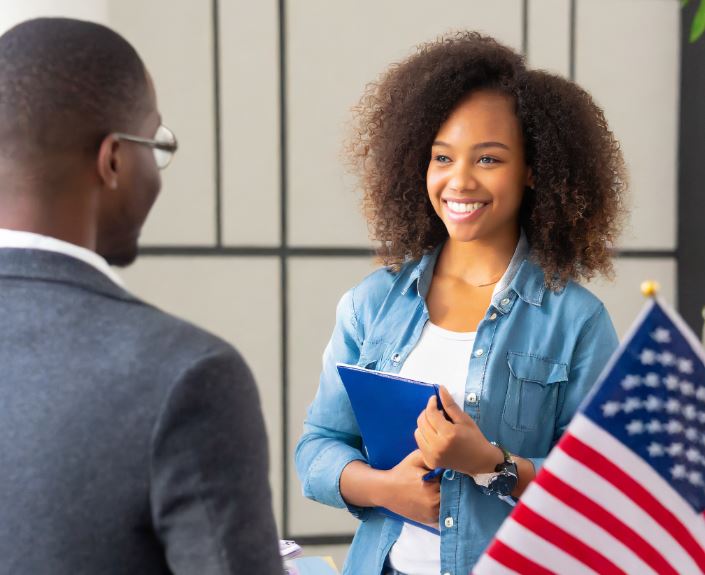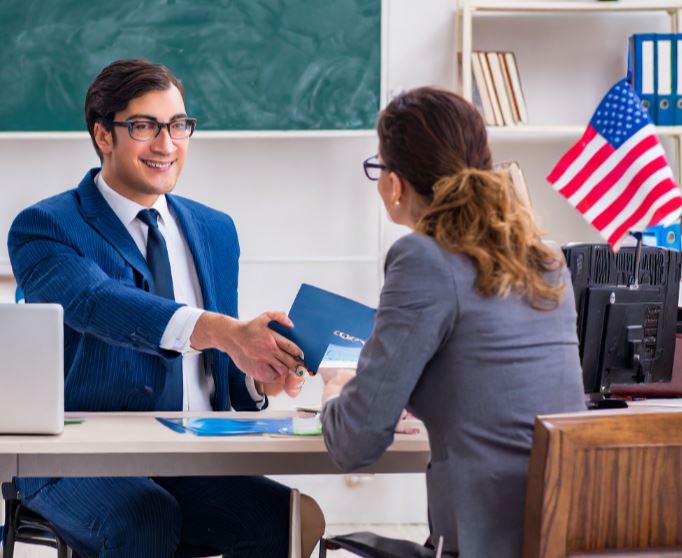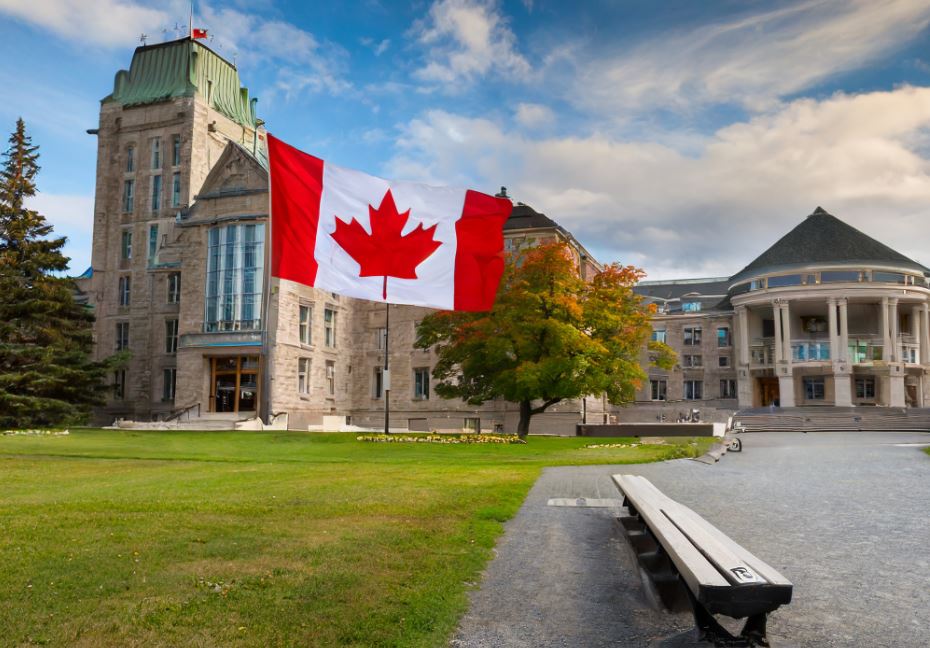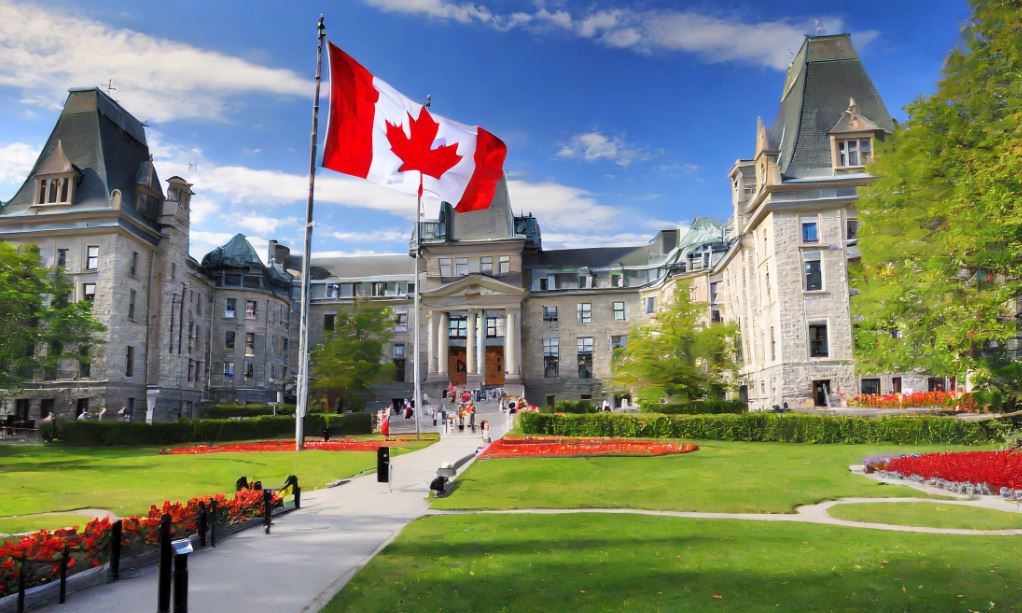The specific questions asked during a U.S. embassy interview for a student visa may vary based on individual circumstances, but generally, they will focus on your intent to study in the United States, your ties to your home country, and your ability to finance your education. Here are some common questions that you might encounter:
Top questions USA embassy interview for F1 student visa:
- Why do you want to study in the United States?
- Can you explain your choice of the United States as a study destination?
- What is the purpose of your trip?
- How did you learn about the university/program you’ve chosen?
- Can you tell us about the program you have chosen and why?
- How does this program align with your career goals?
- What are your long-term career goals?
- Can you discuss your academic background and how it prepares you for this program?
- How do you plan to finance your education and living expenses in the U.S.?
- Can you show evidence of your financial ability?
- Who will be sponsoring your education, and what is their relationship to you?
- What ties do you have in your home country that will ensure your return after completing your studies in the U.S.?
- What do you know about the U.S. education system?
- How will studying in the U.S. contribute to your personal and academic development?
- What do you know about the university you’ve chosen, including its reputation and notable features?
- Have you applied to any other universities? If so, which ones and why did you choose this university?
- What will you do if your visa is denied?
- How will you handle the challenges of living in a different cultural environment?
- Have you ever been to the U.S. before? If yes, can you tell us about your experience?
- How do you plan to cope with homesickness while studying abroad?
- Can you provide examples of your commitment to your home country, demonstrating your intent to return after completing your studies?
- What is your understanding of the academic requirements of the program you will be undertaking?
- How do you plan to use the knowledge and skills gained in the U.S. in your home country?
- Can you discuss any extracurricular activities or community involvement that you’ve been a part of?
- Have you ever been denied a visa to the U.S. or any other country?
American/ US embassy interview Qus. for student F1 PDF
US embassy interview Qus F1 PDF Files

- Career Goals and Program Choice:
- Question: What are your long-term career goals, and how does the chosen program in the U.S. contribute to achieving them?
- Question: Can you elaborate on why you believe this specific program is the right fit for your career aspirations?
- Academic Background:
- Question: How does your academic background prepare you for success in the chosen program?
- Question: Can you discuss any academic achievements or projects that are relevant to your chosen field of study?
- Financial Stability and Sponsorship:
- Question: How do you plan to finance your education in the U.S., and who will be sponsoring you?
- Question: Can you provide details about your sponsor’s financial capability to support your education and living expenses?
- Understanding of U.S. Education System:
- Question: What do you know about the U.S. education system, and how is it different from the education system in your home country?
- Question: How will the U.S. education system enhance your academic and professional development?
- Reasons for Studying in the U.S.:
- Question: Besides academic reasons, are there any specific cultural or personal reasons that influenced your decision to study in the U.S.?
- Question: How do you anticipate the U.S. learning environment will contribute to your personal growth?
- Knowledge of the Institution:
- Question: Can you share what you know about the university you’ve chosen, including its reputation and notable features?
- Question: What made you specifically interested in this university over others offering similar programs?
- Intent to Return Home:
- Question: What ties to your home country do you have that will ensure your return after completing your studies in the U.S.?
- Question: Can you provide examples of your commitments in your home country that demonstrate your intent to return?
- Previous Travel History:
- Question: Have you traveled to any other countries before? If yes, can you share your experiences?
- Question: How has your previous travel experience prepared you for studying in the U.S.?
- Language Proficiency:
- Question: How confident are you in your English language proficiency, and how do you plan to handle any language challenges you may face in your studies?
- Question: Have you taken any standardized English language proficiency tests, and if so, what were your scores?
- Coping with Challenges:
- Question: Studying abroad can present challenges. How do you plan to cope with cultural differences, academic pressures, and homesickness?
- Question: Can you share an example of a challenging situation you faced in the past and how you successfully navigated it?
What to DO:
USA embassy interview Time for F1 student visa
- Be Prepared:
- Do thorough research about the university, program, and the city where you will be studying.
- Familiarize yourself with the U.S. education system and the specific requirements of your chosen program.
- Bring All Required Documents:
- Do ensure that you have all the necessary documents, including your I-20 form, passport, visa application confirmation, financial statements, and any other supporting materials.
- Practice Interview Questions:
- Do practice answering common interview questions to help you articulate your thoughts clearly and confidently.
- Be Honest and Transparent:
- Do provide honest and accurate information. If you don’t know the answer to a question, it’s okay to say so.
- Demonstrate Ties to Your Home Country:
- Do emphasize your ties to your home country, such as family, employment opportunities, or community involvement, to show your intention to return after your studies.
- Express Enthusiasm:
- Do express genuine enthusiasm for your chosen program and your eagerness to contribute to the academic community.
- Speak Clearly and Confidently:
- Do practice speaking clearly and confidently. Maintain good eye contact and be mindful of your body language.
- Dress Professionally:
- Do dress in a professional and appropriate manner. First impressions matter, and a neat appearance can contribute positively to your interview.
- Remain Calm and Composed:
- Do remain calm, composed, and respectful throughout the interview, even if you encounter challenging questions.
- Follow Up:
- Do follow up with any additional documents or information if requested by the consular officer.
What to Don’ts:
American embassy interview Time for student visa
- Provide False Information:
- Don’t provide false or misleading information. This can lead to visa denial and future immigration issues.
- Underestimate the Importance of Preparation:
- Don’t underestimate the importance of preparation. Being well-prepared helps you feel more confident and focused during the interview.
- Speak Too Quickly:
- Don’t speak too quickly. Take your time to articulate your answers clearly, and ensure that the interviewer can understand you.
- Argue or Challenge the Officer:
- Don’t argue or challenge the consular officer. If you disagree with a question or decision, address it respectfully.
- Discuss Irrelevant Information:
- Don’t provide information that is not directly related to the questions asked. Stick to the topic and avoid unnecessary details.
- Appear Uninterested:
- Don’t appear disinterested or unenthusiastic about your studies. Show genuine excitement and motivation for your academic pursuits.
- Forget to Bring Important Documents:
- Don’t forget to bring any required documents. This oversight can lead to delays or denials.
- Rely Solely on Memorized Responses:
- Don’t rely solely on memorized responses. While it’s good to practice, be flexible in your answers to address specific questions.
- Interrupt the Interviewer:
- Don’t interrupt the consular officer while they are speaking. Wait for them to finish before responding.
- Assume Approval or Denial:
- Don’t assume approval or denial based on the tone of the interview. The final decision is made after a thorough review of your application.
Remember, the goal is to present yourself as a genuine student with clear intentions to study and return to your home country after completing your program. Following these do’s and don’ts can enhance your chances of a successful visa interview.
Remember to provide clear, honest, and concise answers. It’s important to demonstrate that you are a genuine student with a sincere intention to study in the U.S. and that you plan to return to your home country after completing your studies. Additionally, make sure to bring all the required documents, including your I-20 form, financial statements, and any other relevant supporting materials.







